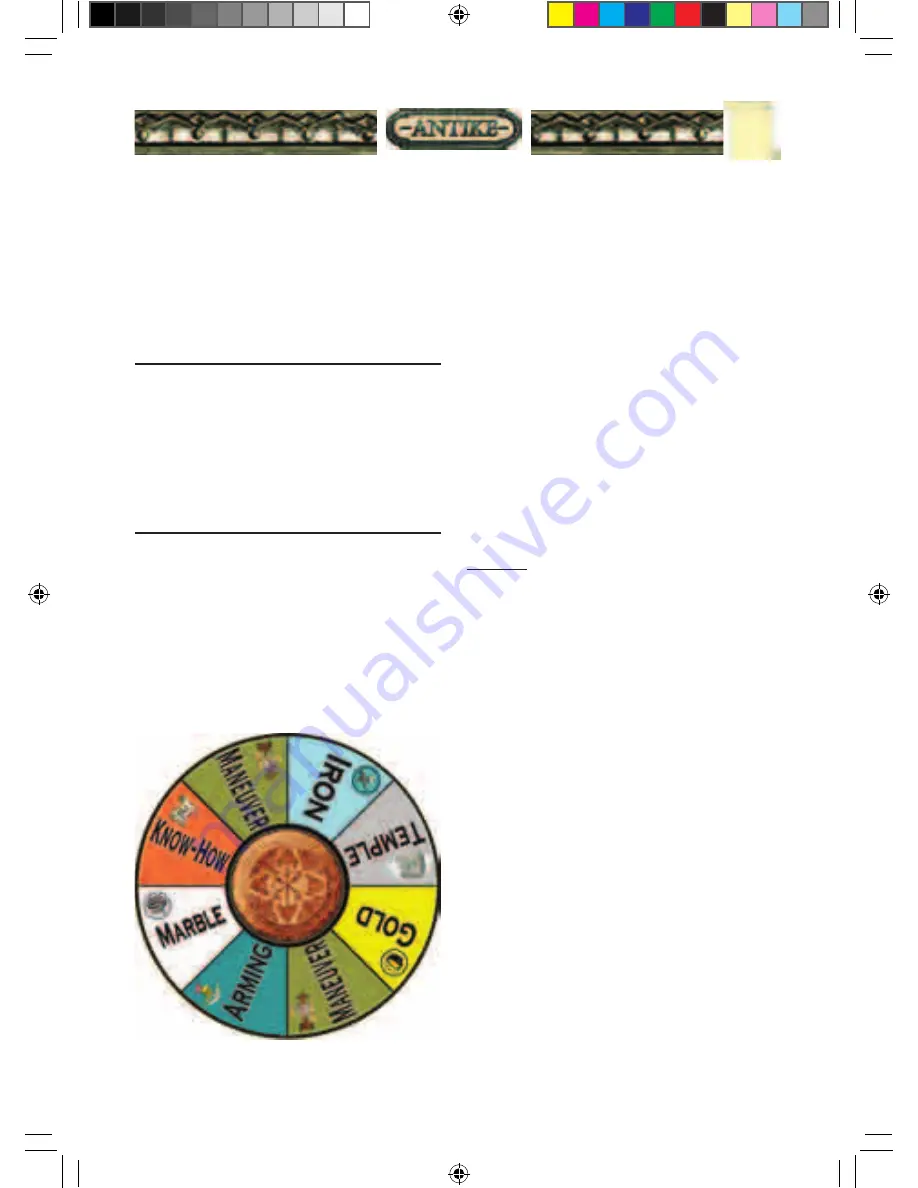
Starting player
The nation with a red dot on its nation card
highlighting the number of nations taking part
starts the game. It also get the "starting player"
card.
With four nations participating, for example,
the Phoenicians start (red dot highlighting the
4).
Take a coin
At the start of each round of play (when the
player who started the game has his turn again)
each nation receives a coin from the bank.
These coins can substitute at all times for 1-
unit marble, iron, or gold chips. When the bank
has no more coins, players can request 1-unit
marble, iron or gold chips instead.
Players take turns round the table in clock-wise
sequence. On each nation‘s turn, an action field
(wedge) of the player‘s choice will be selected on
the rondel, and marked with a game stone of the
nation‘s color. If a nation places its game stone
on the wedge marked GOLD for example, it can
produce gold, etc. The full meaning of the individ-
ual wedges will be explained in the succeeding
pages. After the rondel action, a nation may still
found cities and win ancient personages.
Taking a turn
1. Moving on the rondel
For the first turn, each nation can select any
wedge on the rondel that it wishes. But for every
succeeding turn, the nation must move clockwise
around the rondel. Starting from its last position,
the nation may move one, two or three wedges
on the rondel free of charge. For advancing
more than three wedges, the bank must be paid,
per each additional wedge, one resource of the
nation‘s choice, i.e., a marble, iron or gold chip
or a coin. It is not possible simply to remain on
the wedge used for the previous turn. To use
the same wedge twice in a row, a nation must
advance eight wedges and pay the bank five
resource units of its choice (marble, iron or gold
units, or coins).
Example
:
A nation‘s game stone is on IRON. It can ad-
vance to TEMPLE, GOLD, or MANEUVER free
of charge. But to advance to ARMING, it must
pay the bank one resource, to MARBLE two re-
sources etc.
2. Founding Cities
A nation may found one or more new cities. The
nation must however have at least one military
unit (legion or galley) in the province where the
city is to be built. Foreign military units in the
province cannot prevent the city‘s founding. For
each newly founded city, the nation must pay
the bank one marble, one iron and one gold unit.
Coins can substitute for lacking marble, iron or
gold chips. The nation places a city stone of its
color on each new city it founds.
3. Winning Ancient Personages
At the end of a turn, a nation collects one or more
ancient personages if it meets the requirements
for each, and the bank still has them available.
GAME FLOW
V
Regel7_eng.indd 5
11.07.2006 0:56:44 Uhr


































